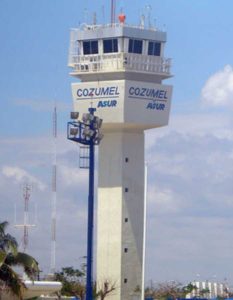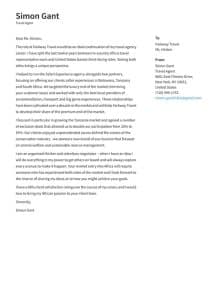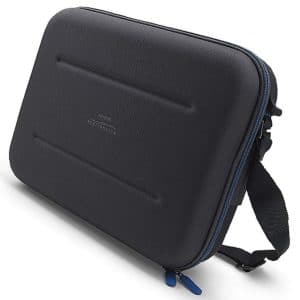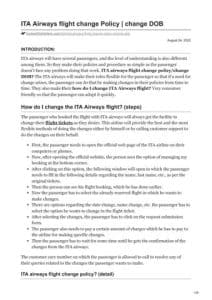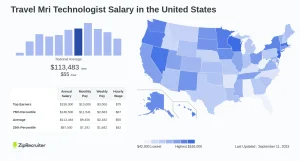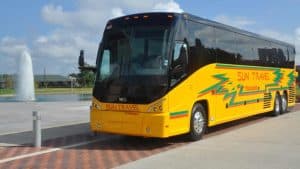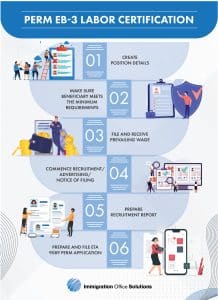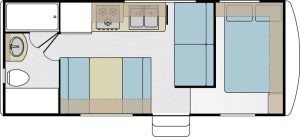Welcome to Hosteliest! This article aims to debunk common misconceptions surrounding DOD travel policy. We’ll challenge the rumors and provide you with accurate, up-to-date information. Let’s begin a journey of discovery and truth.
Title: Debunking Misconceptions: What is Not True About DOD Travel Policy
Opening Loop: There’s been a lot of chatter about the Department of Defense (DOD) travel policy. Some statements sound too good to be true, others downright peculiar. But let’s clear the air and debunk together what is not true about DOD travel policy.
Introduction
Settling the dust around the DOD travel policy can be challenging, especially when disinformation tends to spread like wildfire. This article aims to separate fact from fiction and provide accurate information about the DOD’s regulations on travel.
Common Misconceptions About the DOD Travel Policy
The phrase “what is not true about DOD travel policy” has been making rounds on the internet. Here are some of the typical misconceptions people often have.
1. All DOD Personnel Can Choose Any Hotel Without Limitations
While it’s true that DOD personnel have the freedom to choose where they will lodge during official travel, it isn’t without boundaries. The Joint Travel Regulations (JTR) provides specific guidelines with regards to per diem rates, locations, and authorized exceptions. Therefore, the claim that DOD personnel can pick any hotel, regardless of cost or location, is wrong.
2. The DOD Covers All Travel Expenses Without Question
Yes, DOD covers legitimate, necessary costs incurred during travel. However, it doesn’t mean they blindly cover all expenses. Personnel need to provide valid receipts and adhere strictly to the reimbursement policies. Any expense that doesn’t directly relate to the mission or isn’t justified could be denied.
3. Personnel Can Use DOD Travel for Personal Vacations
This notion is incorrect. The DOD travel policy strictly stipulates that its purpose must be for official government business. While there might be leisure during these travels, the primary intention should not be personal vacation.
Understanding the DOD Travel Policy
Therefore, understanding what is not true about DOD travel policy can help clear up any misunderstandings and ensure personnel use this privilege correctly. The aforementioned points are just a fraction of common misconceptions about DOD’s travel policy.
So before you believe that rumor or misinformed claim, it’s worth noting that the DOD travel policy is governed by regulated guidelines designed to maintain transparency and accountability.
Conclusion
While the DOD provides its personnel with extensive travel benefits, it’s crucial to remember that these are not without their limitations and guidelines. Recognizing what is not true about DOD travel policy helps promote understanding, assures correct utilization of benefits, and fosters compliance with set regulations.
In the world of travel, as with any other industry, it’s always wise to seek truth, especially when certain assumptions can lead to complications down the line.
Closing Loop: Now, armed with factual understanding, we’ve debunked what is not true about DOD travel policy. The next time you hear a questionable statement, you can confidently clarify the truth behind the DOD travel policy.
Hopefully, this article has enlightened you and cleared your thoughts about the policy. Remember, while the internet can be a wealth of information, it can also be a breeding ground for misinformation. So always sift through the noise and seek out reliable sources.
Table of Contents
ToggleDebunking Common Misconceptions about the DOD Travel Policy
The Department of Defense (DOD) travel policy is often misunderstood, leading to misconceptions that can unnecessarily complicate trips for service members and other DOD personnel. Let’s set the record straight.
One commonly held belief is that all DOD travelers must stay in government quarters. In reality, while government quarters are always the first choice, if they are not available or suitable, DOD travelers are allowed to use commercial lodging facilities.
Another misconception is that DOD travelers cannot earn loyalty points from hotel stays. This is not true. While the Joint Travel Regulations (JTR) does not encourage enrolling in frequent traveler programs to influence selection of transportation or accommodation, personnel traveling on official business are not prohibited from participating in these programs or receiving benefits associated with them, such as hotel loyalty points.
Some people believe that DOD personnel cannot make direct hotel reservations. The truth is, although the Defense Travel System (DTS) should be used for arranging all aspects of official travel, DOD travelers can make direct reservations when necessary, especially in remote locations that may not be listed on DTS.
The notion that DOD personnel are only permitted to eat at government dining facilities is another misconception. DOD personnel on travel are free to eat wherever they choose, though they must adhere to the stipulations provided in their per diem, which may limit meal costs.
The misconception that DOD personnel cannot travel to certain countries is also prevalent. While there may be restrictions, such as needing approval from a supervisor or adhering to specific safety precautions, DOD personnel might be required to travel to any country depending on their mission. The Foreign Clearance Guide provides the necessary guidance for such travels.
All these debunked misconceptions serve to clarify the DOD travel policy and should make it easier for personnel to plan and conduct their official travels. Always consult the relevant policy documents or your chain of command when in doubt.
Common Misconceptions About DOD Travel Policy
Often, the Department of Defense (DOD) travel policy can elicit numerous misunderstandings due to its complexity. Here are a few common misconceptions:
The first fallacy is that all military members have unlimited access to Space-A travel. This is not accurate as this privilege is dependent on their rank, mission requirements, and job description. Moreover, while Space-A travel may be less expensive, it is also a non-prioritized means of transportation, making it less reliable.
The second misconception is that DOD civilian employees cannot take advantage of DOD hotels. The truth is that DOD civilian employees are eligible to stay at DOD hotels for both business and leisure. However, reservations are generally granted based on the availability and the purpose of the stay.
Lastly, it is not true to assume that DOD per diem rates cover all expenses. Per diem rates primarily cover lodging, meals, and incidentals. Fees like car rentals, flights, and certain other expenses must be out-of-pocket unless otherwise specified by the travel orders.
The Reality of DOD Travel Policies
The DOD has implemented strict travel policies to govern official trips for service members and civilians.
Contrary to popular belief, the Joint Travel Regulations (JTR) does not restrict service members from staying in non military-owned accommodations. While it’s true that they are encouraged to use DOD lodging facilities whenever possible, they are free to choose other hotels if they meet certain conditions stipulated in the JTR.
Another reality is that DOD has stringent rules regarding reimbursement for travel expenses. In most cases, you will only be reimbursed for expenses that are necessary and incurred while performing official duties.
Busting the Myths About DOD Rental Car Policies
When it comes to rental cars, the DOD policy provides specific guidelines that are often misunderstood.
One common myth is that service members and DOD civilian employees are allowed to rent any car they choose. In reality, the policy mandates them to select the lowest-priced vehicle that meets mission requirements. Luxury cars, sports cars or oversized vehicles are not reimbursable unless they meet a justifiable need.
Another misconception is that DOD covers all the costs linked with rental car accidents. This notion is false. While the policy includes some coverage for damages and liability, it does not cover every circumstance. Service members or civilian employees may be held financially responsible if it is determined that negligence or misuse on their part played a vital role in the accident.
Frequently Asked Questions (FAQ)
“What are some common misconceptions about the DoD travel policy?”
There are several misconceptions about the Department of Defense (DoD) travel policy that people often misunderstand. Here are some common ones:
1. All DoD Travel is Military Travel: One major misconception is that all DoD travel is military travel. This is not accurate. The DoD also encompasses civilian employees who travel for various purposes such as trainings, conferences, and inter-agency collaborations.
2. You Can Book Any Hotel: Another common misconception is that travelers can book any hotel they want. According to the Joint Travel Regulations (JTR), DoD travelers must use Defense Travel System (DTS) or a Travel Management Company (TMC) for their accommodations. This is to ensure the safety and security of the travelers.
3. The DoD Covers All Expenses: Many believe that the DoD covers all expenses incurred during the trip. This is also inaccurate. The DoD reimburses for reasonable expenses necessary for official travel. However, personal expenses or those deemed extravagant are not covered.
4. DoD Travelers Can Use Any Airline: Not true. DoD travelers are required to use U.S. Flag Air Carriers for transportation, in compliance with the Fly America Act.
5. Travel Orders Are Not Necessary: Contrary to this belief, travel orders are an essential first step in DoD travel. These document the approval of travel and may need to be presented at various points of the journey.
Understanding these aspects of the DoD travel policy can help ensure a smoother travel experience for all involved. It’s important to consult the latest guidelines and regulations to stay informed about any changes in policy. Given the sensitive nature of DoD activities, complying with these directives is also a matter of national security.
“What are the inaccuracies often believed about the DoD travel policy?”
The Department of Defense (DoD) travel policy is a comprehensive set of rules and guidelines aimed at regulating all facets of travel for DoD personnel. However, there are several misconceptions about these policies that need to be dispelled.
1. All Travel Must Be Military-Related: It is often incorrectly assumed that all DoD travel must be military-related or on official business. While majority of the travel may indeed involve official duties, the DoD travel policy also makes provision for personal leisure travel for its personnel and their families through services like Armed Forces Vacation Club.
2. Limited Accommodation Choices: There’s another myth implying that DoD personnel are limited to staying in base lodging or government-owned accommodations during official travels. The Joint Travel Regulations allow for commercial lodging when necessary but also stipulate that DoD travelers should give priority to available DoD or DoD Privatized Lodging.
3. Constrained by Strict Budgets: Many believe that DoD travelers have very tight budgets and cannot enjoy quality accommodations or dining because they must opt for the least expensive options. This is not entirely true. While there are certainly budget considerations, the aim is to ensure reasonable expenses. Personnel are allowed to use their government travel cards for authorized expenses which are reimbursed later.
4. All DoD Travel is High-Security: It’s another common misbelief that all DoD travel involves high-security measures. Though security is critical when it comes to government officials, not all travel is high risk or requires stringent security.
5. Excessive Paperwork: While it’s true that any travel involving government entities can require additional layers of approval and paperwork, advancements have been made to streamline the process. The Defense Travel System (DTS), for example, is a fully integrated, electronic system that automates the entire range of travel procedures, making it less burdensome.
In summary, the DoD travel policy exists to establish a standard for travel-related activities within the department, and while it may seem complex and rigid, it has room for flexibility and convenience. It’s essential to understand its nuances to demystify any inaccuracies and misconceptions.
“Can you debunk any myths or false beliefs about the Department of Defense’s travel policy?”
Absolutely, there are several myths or misunderstandings that exist regarding the Department of Defense’s travel policy.
1. Myth: All DoD travelers must stay in a DoD-contracted hotel
Reality: While it’s true that the DoD has a list of preferred hotels, these are not mandatory for all travel. The Joint Travel Regulations (JTR) allows travelers to choose their lodging as long as it is within the allowable lodging rate ceiling.
2. Myth: Travelers must always fly on U.S. flag air carriers even if cheaper options are available
Reality: The Fly America Act generally does require the use of U.S. airlines for DoD travelers, but there are exceptions. When an exception applies, travelers may use foreign airlines if they provide a cheaper, reasonable alternative or if U.S. carriers are not available.
3. Myth: The government travel card must be used for all travel-related expenses
Reality: While the government-issued travel card is intended to be used for official travel expenses, personal charges are not strictly prohibited. However, any personal expenses charged to the card must be paid in full by the cardholder when due.
4. Myth: If a traveler is on orders for 31 days or more, they must get a non-availability statement for lodging
Reality: According to the JTR, a non-availability statement is not required for long-term TDYs (Temporary Duty Assignments). In this case, the traveler is encouraged to find suitable lodging within the locality lodging per diem rate.
It’s essential for DoD travelers and those who arrange travel for them to thoroughly understand the policies outlined in the Joint Travel Regulations as they dominate all aspects of DoD travel.
In conclusion, the misconceptions surrounding the DOD travel policy can lead to confusion and potential complications when planning travel for military personnel. Despite some common beliefs, not everything is covered by the policy, it does not guarantee luxury accommodation, and there are still strict regulations in place that travelers must adhere to. Understanding these aspects is crucial to ensure a smooth and problem-free experience. As always, it’s important to refer directly to the DOD’s official guidelines for the most accurate and up-to-date information. Stay informed, travel wisely, and make your journey a memorable one.



